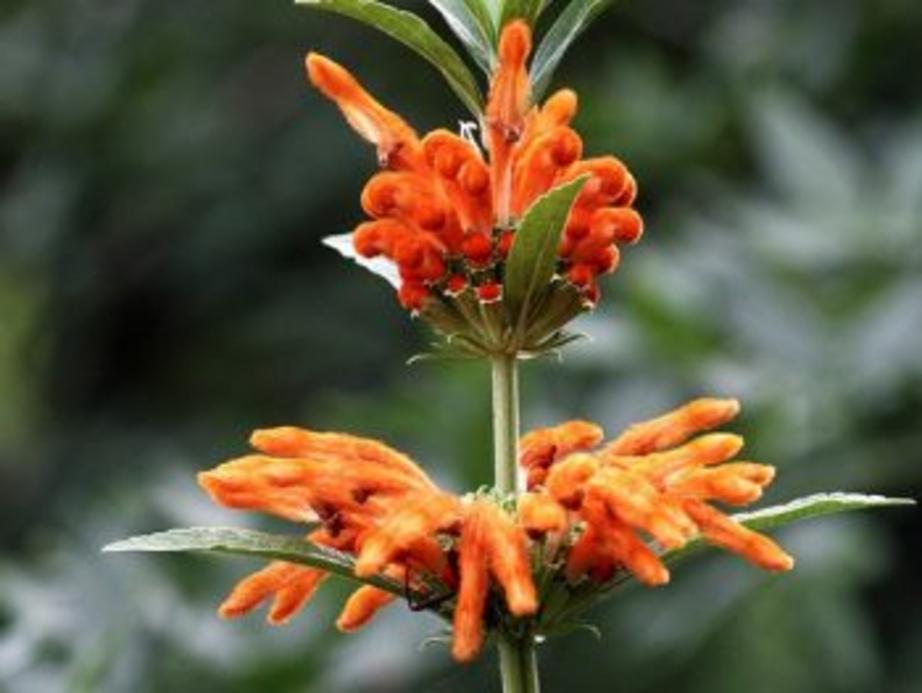Dagga flower - 'wild cannabis' of the East
People from all walks of life are beginning to exponentially awaken to the Big Pharma conspiracy — and it is certainly no theory. Through the systematic corporate take-over of institutional medicine by families like the Rockefellers (among others), our doorstep has been darkened by the scourge of allopathic medicine, as opposed to holistic, shamanic medicines that have thousands of years of human history.
Many substances that Big Pharma would rather you never hear of due to their natural ability to heal, often times more effectively than their pharmaceutical counterparts, are now leading a resurgence of holistic medicine. A rising number of people are becoming aware of the therapeutic potentials of psilocybin mushrooms, cannabis, DMT, and iboga, and more low-key and legal medicinal plants, like Valerian root, St. John’s wort, mugwort, kratom, and many more still that have even larger spectrum of therapeutic potential without the addition of getting “high” to any degree.
However, the Dagga flower is something that embodies both of these types of holistic medicines, without being some sort of intense psycho-metaphysical sojourn on an Amazonian plant, et cetera. Known by many today as the “wild cannabis” or “cannabis substitute,” dagga’s traditional name is “Lion’s Tale,” and the scientific classification is Leonotis leonurus.
The plant is said to grow from two to five meters, have a mild fragrance, and an enchantingly pleasant flower bloom, both in appearance and usage. While it is native to southern Africa, dagga also has a long shamanic history with the indigenous people of China and Vietnam. Today, dagga has been naturalized in a variety of other places, such as California, Australia, Mexico, and the Caribbean. Currently, dagga is globally legal and can be ordered through a variety of different website outlets.
When smoked, dagga is said to have a euphoric, calming, uplifting highness. This is said to also provide a sense of mental clarity and warmth of visual perception. Much akin to cannabis, because of a similar delivery of alkaloids also found in cannabis, it has been a favorite recreational and shamanic medicinal plant since people have known of it. In some indigenous languages, cannabis and dagga have the same general name.
Also like cannabis, the flowers of dagga are picked for their psychoactive use, and the leaves can be used for this purpose as well, in larger doses than the flower. The flowers are dried for smoke (often to be mixed with other herbs in a blend); can be used as a tea, which has a much deeper sedative quality than the smoke, and a larger medicinal spectrum. And, sharing another commonality with cannabis, dagga can be made into resin oils, tinctures, and is incredibly useful for topical skin ailments, from minor irritation to chronic conditions like eczema.
In today’s western society of scientific discovery, dagga has hardly been given any credit, but it has kept a steady horticulture for itself through herbalists, hippies, holistic doctors, and recreational growers, and it doesn’t seem to be going anywhere anytime soon..
If a local smoke-shop or herbal storefront does not carry dagga, it is widely available online, and recommended by humans throughout the centuries! Down with the disastrous and toxic results of Big Pharma’s allopathy; it’s time to dive back to the roots of holistic medicines, and this means not just settling on the popular varieties like the commonly accredited psychedelics. Plants such as dagga, blue lotus, valerian, kratom, kava, desmodium, and so many others are still little known in today’s western societies, yet their uses are as versatile as any of the more well-known varieties. Those who consider themselves part of the holistic medicines’ resurgence have a responsibility to not only propagate these plants, but to spread the word about their wonderful uses and remedies, so that the people who can medically benefit from them are not deprived of their relief.
For those interested in trying Wild Dagga Flower for themselves, it can be found on Amazon HERE.
Sources:
- http://www.smokableherbs.com/wild-dagga-flower
- http://www.marijuanaalternatives.com/dagga.htm
- http://entheology.com/plants/leonotis-leonurus-lions-tail

